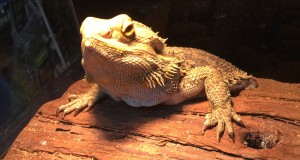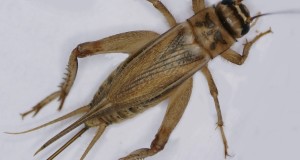Wildlife rehabilitators are private citizens who care for injured, sick or orphaned animals and, whenever possible, return them to their natural habitats (un-releasable animals may sometimes be retained for educational purposes). Such work has traditionally focused on birds and mammals, but these days a growing number of caring people are focusing their efforts on turtles, frogs, snakes, alligators and other herps.
Working as a Rehabilitator
In the USA, nearly all rehabilitation work is on a volunteer basis, and it may be carried out at home or in association with a nature center or animal hospital. Rehabilitators must be licensed by their state’s wildlife agency; requirements vary by state and may include an internship with an experienced rehabilitator and a test.
In addition to helping conserve native amphibians and reptiles, “rehabbers” may find opportunities to work endangered species and to co-operate with government agencies in the care of confiscated animals – creatures which they might otherwise see in zoos only, if at all.
Turtle Rehabilitation
Turtles are the reptiles most commonly brought to rehabilitators, and because even “non-herpers” like turtles, it is with these creatures that we have developed our greatest expertise. In my work as a rehabilitator, I have been involved in removing and incubating eggs from road-killed Diamondback Terrapins, fashioning a “skateboard” for a 3-legged Ornate Box Turtle and a partial plastic carapace for a Gopher Tortoise, and many other interesting rescue efforts. Marine and freshwater species are also frequent casualties of human activities, and dedicated rehabbers are working wonders with them as well.
Other Herps
We know less about the medical care needed by snakes, lizards and crocodilians, and very little about frogs and salamanders. People working with these animals have a very real opportunity to discover important information and develop new care and rehabilitation techniques.
The need for trained, caring rehabilitators can only grow as we exert ever more pressure on natural populations of reptiles and amphibians, so please get involved if you are able – you’ll not regret the experience, I can assure you.
Further Reading
Detailed information on becoming a licensed rehabilitator is available through the International Wildlife Rehabilitation Council.
The National Association of Wildlife Rehabilitators can refer you to local experts and offers advice on licensing requirements. Or find a rehabilitator using this link.
An interesting video showing a disabled tortoise that gets around quite well on wheels is posted here.
 That Reptile Blog – Reptile, Amphibian and Exotic Pet Care and Information
That Reptile Blog – Reptile, Amphibian and Exotic Pet Care and Information



Nice post. If someone is looking for a wildlife rehabilitator in NY, they can get information at:
http://www.nyswrc.org/counties.htm
Hello Patricia, Frank Indiviglio here.
Thanks for your interest in our blog and for the useful reference; I’ll keep it handy. I attenended conferences sponsored by the organization you mentioned, the NYS Wildlife Rehabilitation Council, many years ago – nice to see they are still hard at work on behalf of wildlife.
I’m planning to post new turtle articles shortly – I look forward to hearing from you.
Good luck and please keep me posted on your fine work with turtles,
Best regards, Frank Indiviglio.